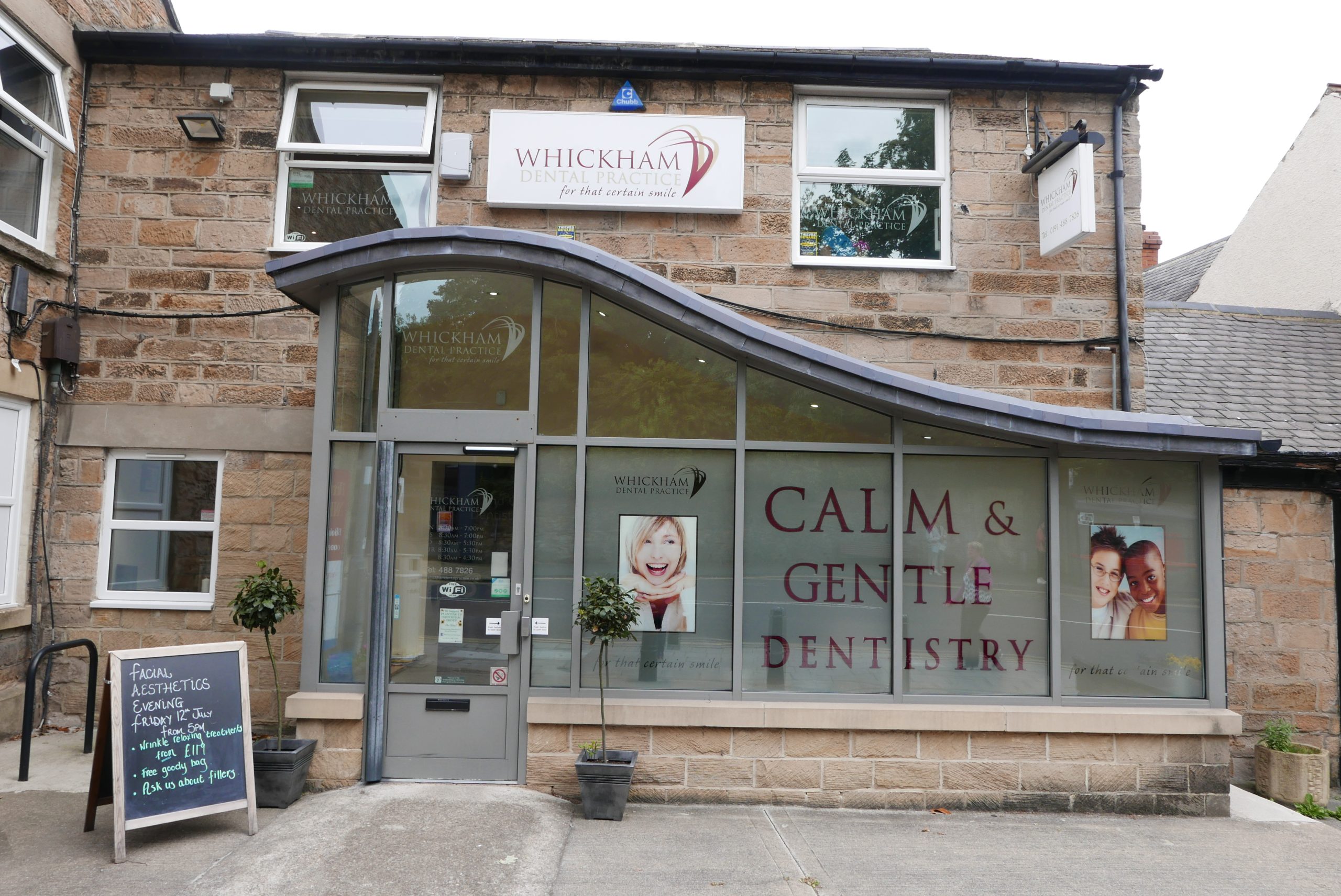I’d like to be able to smile with confidence. What can I expect from… Teeth Bonding?
In our “What can I expect?” series of blog posts, Paul Stott, Associate Dentist in his 30th year at Whickham Dental Practice, answers the most commonly asked questions about Teeth Bonding.
- What is teeth bonding?
Teeth bonding is the application of natural tooth coloured, composite materials to the tooth’s surface to reshape it. It is much kinder to the teeth than more traditional techniques such as crowns and veneers.
- Who is teeth bonding suitable for?
Generally speaking, after the teeth have stopped developing in childhood, bonding is suitable for any age group.
We can use bonding to close gaps, build up small teeth, lengthen worn teeth, build out a recessed or twisted tooth or hide discolouration. For those who don’t want to go through the process of orthodontics (braces), we can redesign a misaligned smile.
- How long does the procedure take?
It’s a relatively simple cosmetic dental procedure that is usually carried out in one or two visits.
Before we start carrying out any work, we will invite you in for an initial discussion to make sure we are clear about what you want to achieve. It’s important that we meet our patient’s expectations and deliver the results you are expecting.
- Is it painful?
No! Often, the treatment can be done with little or no tooth preparation and often without the need for local anaesthetic.
- How long will the results last?
Typically 5-10 years. However, as with natural tooth enamel, a lot depends on how we look after our bonded teeth. If people have a diet containing food and drinks that are liable to stain teeth, they may need a proper polish-up every few years.
People who heavily grind their teeth may require more maintenance. The good news is, composite bonding is easily repaired, which is a significant advantage over porcelain veneers and crowns.
- Are there any other advantages over porcelain crowns and veneers?
As well as being less invasive and more reparable, they are less expensive as there are little or no laboratory costs. I find that the latest generation of materials are often more natural-looking, especially if doing a localised area. However, composite is not as hard and probably won’t last as long as porcelain.
- Are there any risks?
Practically none. The less invasive the treatment, the less the risk. If there is anything of concern about the treatment, your dentist will raise it first.
- I am interested and would like to find out more. Who should I contact?
To find out more, or to make an appointment for your consultation, contact our treatment coordinator, Julie Marshall, on 0191 488 7826, email info@whickhamdentalpractice.co.uk or visit our Dental Bonding page to find out how teeth bonding could be the solution for you.



